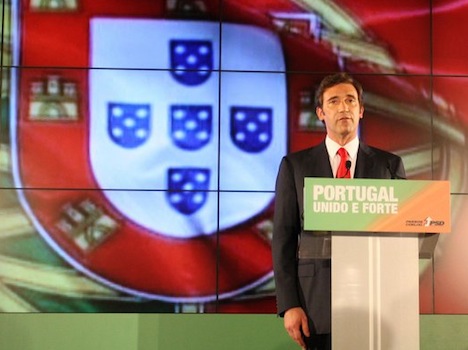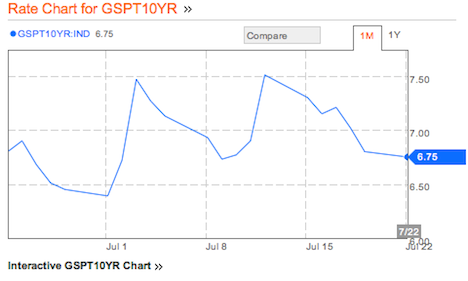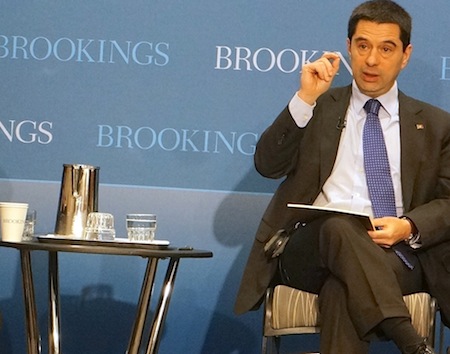Twenty-two days later, Portugal is set to return to its center-right government, capping a month of twists and turns in a political crisis that began with the resignation of Portugal’s finance minister Vítor Gaspar and, then, the resignation of foreign minister Paulo Portas over the austerity program that Gaspar had been in charge of implementing as a condition of Portugal’s €78 billion bailout. ![]()
Portugal’s prime minister Pedro Passos Coelho (pictured above) reached a deal over a week ago to continue the center-right government led by prime minister and his Partido Social Democrata (PSD, Social Democratic Party) in coalition with the more socially conservative party Portas leads, the Centro Democrático e Social – Partido Popular (CDS-PP, Democratic and Social Center — People’s Party), soothing the mercurial Portas by appointing him deputy prime minister and giving him additional input over future bailout discussions and the course of Portuguese economic policy.
But Portugal’s president Aníbal Cavaco Silva, formerly a PSD prime minister from 1985 to 1995, and himself often the subject of Portas’s barbed criticism, refused to approve the deal, instead asking the two parties to bring the opposition center-left Partido Socialista (PS, Socialist Party) into government for a ‘grand coalition’ that would govern through June 2014, the end of the current bailout program.
Read more background here.
Despite talks over the past week, the three parties have failed to come to an agreement, and Cavaco Silva will now approve the government, a move that’s already pushing down Portugal’s 10-year bond yield:
Obviously, the Socialists would never join a government when they lead polls by nearly 10 points, despite the fact that it was the decision by Socialist prime minister José Sócrates to seek a bailout that led to snap elections in June 2011 that brought Passos Coehlo and Gaspar to power.
The challenge for Passos Coehlo is now three-fold: Continue reading Portugal is set for a center-right government



